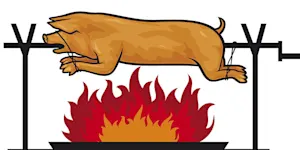What Makes This Word Tick
"Belabor" is one of those words that's been around the block, wearing many hats. It's a verb that originally comes from the idea of working something excessively or persistently. Over time, it's found a cozy spot in conversation as a way of indicating that someone is perhaps overdoing it—particularly when explaining or arguing a point. It's like the oral equivalent of beating a dead horse.
If Belabor Were a Person…
If "belabor" were striding down the street, you'd see them endlessly polishing a single pair of shoes, determined to make them shine brighter than the sun. A perfectionist at heart, they might irritate you a bit with their insistence on rehearsing every detail repeatedly, but you'd also admire their diligence and thoroughness.
How This Word Has Changed Over Time
Originally, "belabor" had a more physical connotation, akin to "beat" or "attack." Over time, it softened and took up residency in the world of rhetoric. Now, it's more about the relentless pursuit of clarity in speech or writing, even when everyone else has already gotten the point.
Old Sayings and Proverbs That Use Belabor
While there aren’t classic proverbs that specifically use "belabor," the spirit of the word can be found in sayings like "Don't flog a dead horse." This captures the essence of belaboring—persistently arguing a point that's already been settled.
Surprising Facts About Belabor
Did you know "belabor" can be a bit of a shapeshifter in terms of its tone? Depending on context, it might suggest admirable thoroughness or exasperating obsessiveness. It's a handy tool in the kit of a good debater—or any family member at Thanksgiving dinner.
Out and About With This Word
You're most likely to see "belabor" in writing aimed at critique or argument. Think news editorials, opinion pieces, or even passionate book club debates where one member just can't let go of a particular plot point—guilty as charged!
Pop Culture Moments Where Belabor Was Used
While "belabor" might not have had its name in lights, it’s the feeling you get when TV characters argue ad nauseam. Think of the debates in "The Office" where Dwight Schrute won't let a topic drop. That’s "belabor" in action!
The Word in Literature
"Belabor" finds its way into literature that loves deep dives, perhaps appearing in the pages of lengthy Victorian novels or modern thrillers where detail is key. Any literary work that enjoys a touch of obsessive, meticulous description might employ this trusty verb.
Moments in History with Belabor
This word might not have popped up in famous speeches, but the notion of belaboring could perfectly describe those long filibusters in political history. Imagine a senator who won't yield the floor, hammering out the same point to exhaustion.
This Word Around the World
"Belabor" might not translate directly in other languages, but many cultures have their versions of over-explanation. In German, "überdeutlich machen" (to overclarify) might come close. Each culture has its spin on when enough discussion is truly enough!
Where Does It Come From?
The history of "belabor" begins in the Middle English period from the combination of the prefix "be-" and "labor," which means to "work at." It's like saying "work at, over and over," which paints quite the picture of persistence or toil.
How People Misuse This Word
People sometimes conflate "belabor" with simple hard work. But it's not about just any work—it's specifically about overdoing the effort, especially in language and explanation. There's a fine line between thorough and too much!
Words It’s Often Confused With
Labor: While related, "labor" is more about the act of work itself, without the pesky notion of overdoing it.
Elaborate: This might be about detail too, but in a way that's often appreciated rather than excessive.
Exaggerate: Though also about excess, "exaggerate" is more about stretching the truth than grinding it.
Additional Synonyms and Antonyms
Synonyms for "belabor" include "overdo," "dwell on," and "harp on," while antonyms might be "understate" and "skim."
Want to Try It Out in a Sentence?
Let's give it a spin: "The project manager tended to belabor every minor detail, discussing plans into the ground until her team members' eyes glazed over."
















